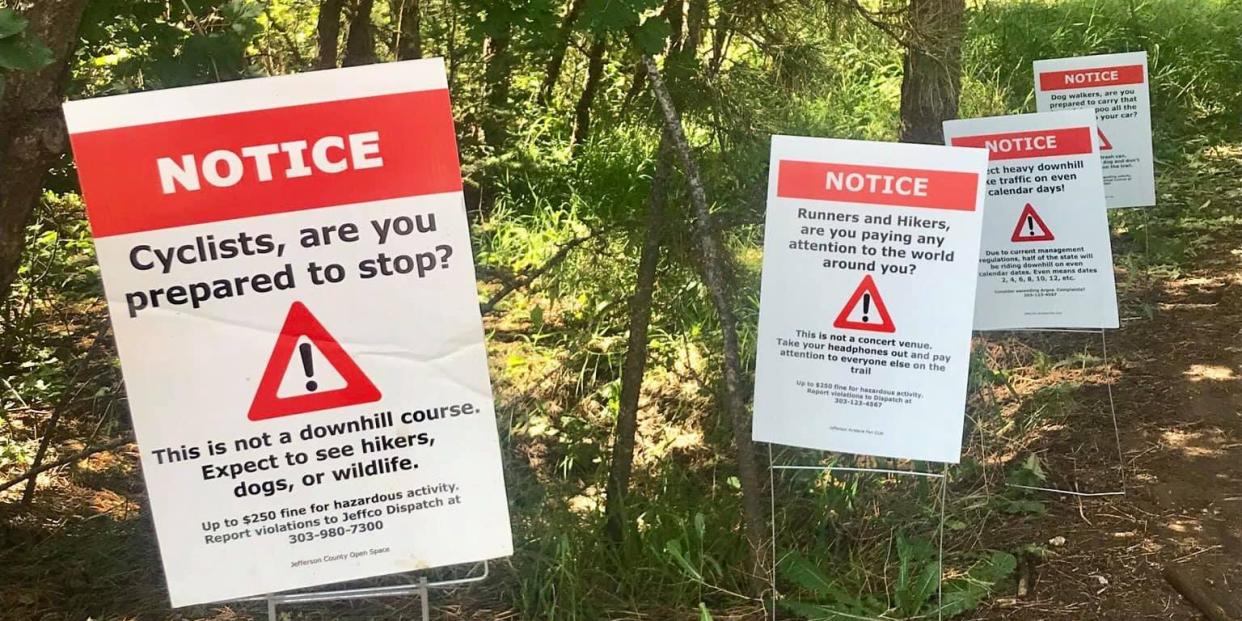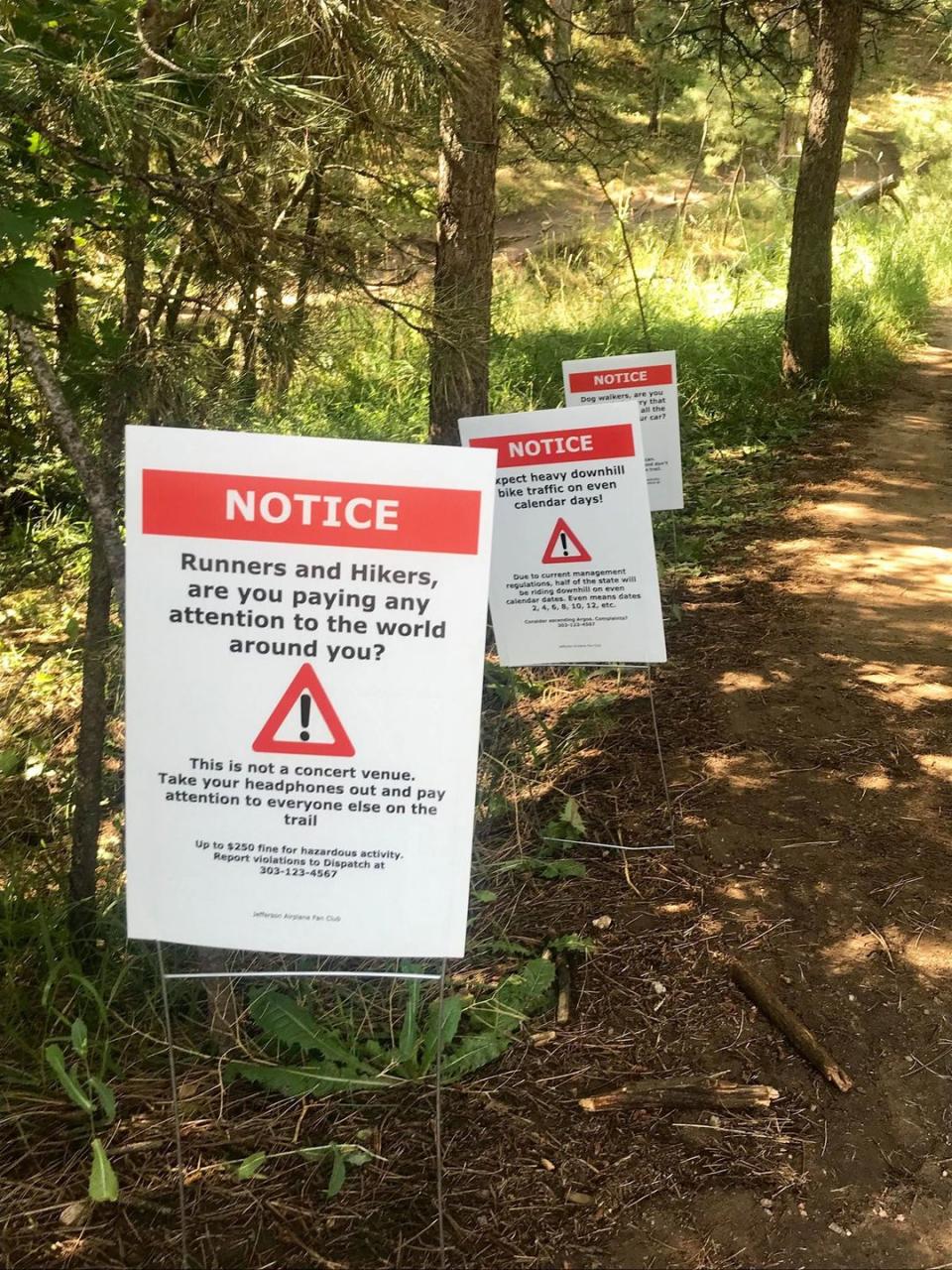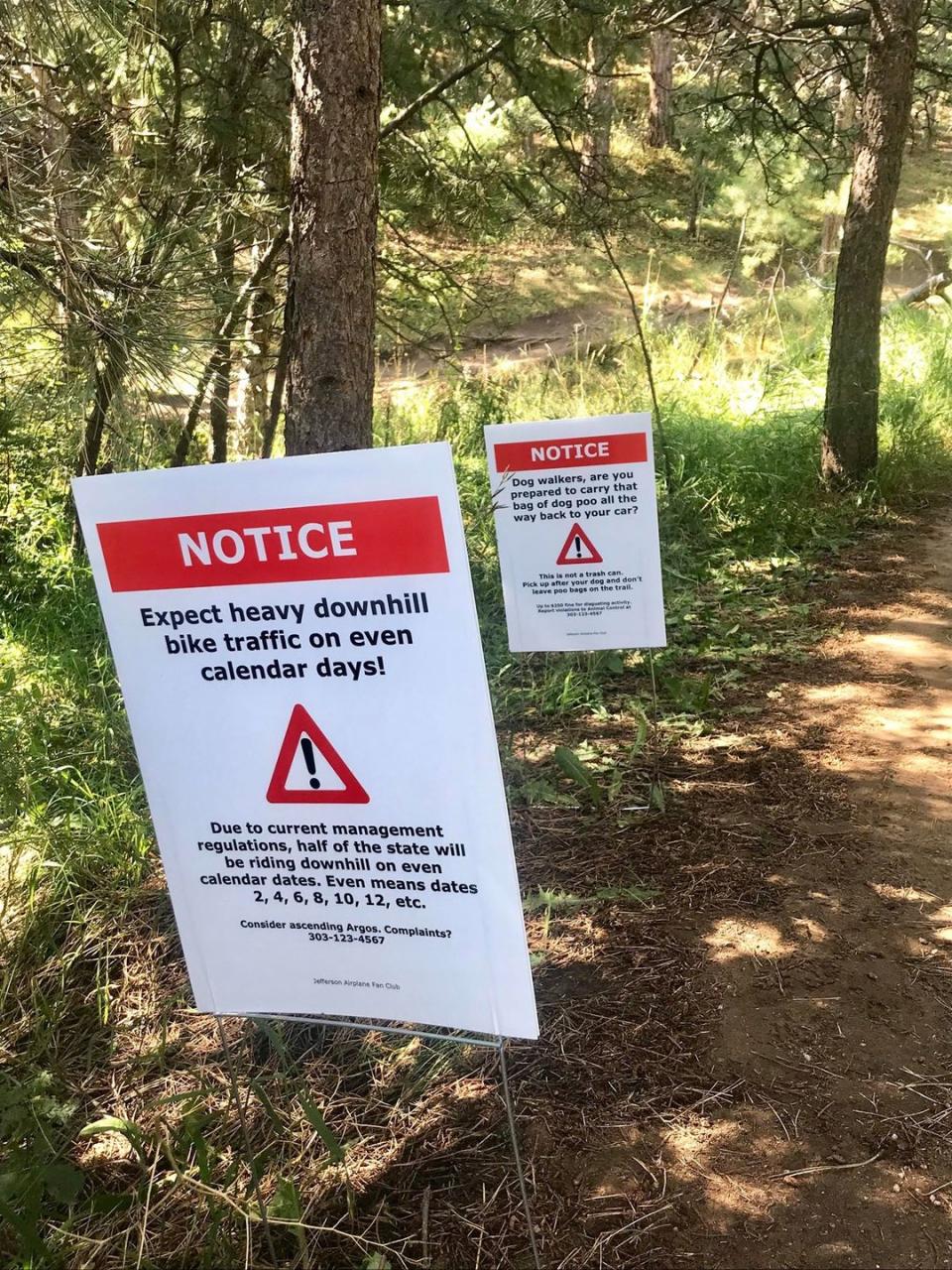Cyclist Posts Snarky Warning Signs Aimed at Runners on Popular Mixed-Use Trail

In response to a county parks department putting up signs telling riders to be more cautious on a Colorado trail, an anonymous person put up signs calling out other trail users for their improper etiquette.
Photos of the signs were posted on Facebook by a Jefferson County local, resulting in more than 3,000 likes and increased discussion.
“Dog walkers, are you prepared to carry that bag of poo all the way back to your car?”
Passive aggressive signs like this were found at the top of the Enchanted Forest/Apex trail, a busy 1.5 mile singletrack in Jefferson County, Colorado, at the end of August.
The signs were in response to an original warning, put out by the Jefferson County Open Space legislators on August, 22, that called out mountain bikers, saying “Cyclists, are you prepared to stop? This is not a downhill course. Expect to see hikers, dogs, or wildlife.”
Chris Le Schieffer, a mountain biker, hiker, and runner local to the trail, was one of the first to witness the new signs and promptly shared them on her Facebook page.
“I had noticed the original sign before, since it had been up for a while, and since the other ones looked so much like the first one, I initially assumed that they were put up by the parks department,” Le Schieffer told Bicycling. “Then I read them, and saw that they were written by the ‘Jefferson Airplane Fan Club’ and that the phone number to call was 123-4567.”
While amusing on the surface, Le Schieffer thinks the signs brought up a valid point.
“The first poster [by the county] was really antagonistic,” Le Schieffer said. “It was essentially saying that hikers and runners should be worried about bikers, as if we are a threat to them. In my experience, mountain bikers are extremely courteous—as am I when I’m riding. But now I feel like I have to be overly cautious, or bikes will get kicked off the trail.”
Le Schieffer pointed out that cyclists only have access to that trail every other day and are often at the bottom of the totem pole when it comes to rights and respect on the trails.
The additional signs made a point to target everyone who could be using the trails, with one example commenting on runners using earbuds. The tongue-firmly-in-cheek signs acknowledged that while riders must be aware of hikers and runners on the trail, they are also responsible for awareness of their surroundings. “I shouldn’t have to yell at you more than twice to let you know I’m coming because you have earbuds in,” Le Schieffer said. “It’s not my problem that you can’t hear me.”


Although the signs were removed a few hours after having been posted, Le Schieffer’s Facebook post gathered a lot of attention about the matter. (The person who made the signs has remained anonymous.) Le Schieffer believes, however, that while these signs caused a stir, that more signage is not the best way to enforce proper trail etiquette.
“There are signs at the beginning of every trail that will tell you the rules and behavior expected in that area,” Le Schieffer said. “But most people walk right past them without reading, so signs just don’t really work. Plus there will always be that small amount of people who are assholes—no amount of signs can change that.”
Mary Ann Bonnell, visitor services manager for Jeffco Open Space, explained to the Denver Post that the reason the signs were placed was because all visitors to the park must be mindful of how others are using the trails. “We get it, that visitor group feels like they are being singled out,” Bonnell said. “They are, because we keep getting complaints about that behavior.”
Though the anonymous signs are no longer posted, they have started a conversation, which Le Schieffer believes is the catalyst to change.
“Talking about the issue of trail etiquette is the best way to bring attention to it,” Le Shieffer said. “It should be discussed in schools as well, particularly in areas with abundant nature preserves and outdoor recreation.
“Respecting nature and proper trail use needs to be taught, so we have a future generation that learns to treat it better than we do.”
You Might Also Like

